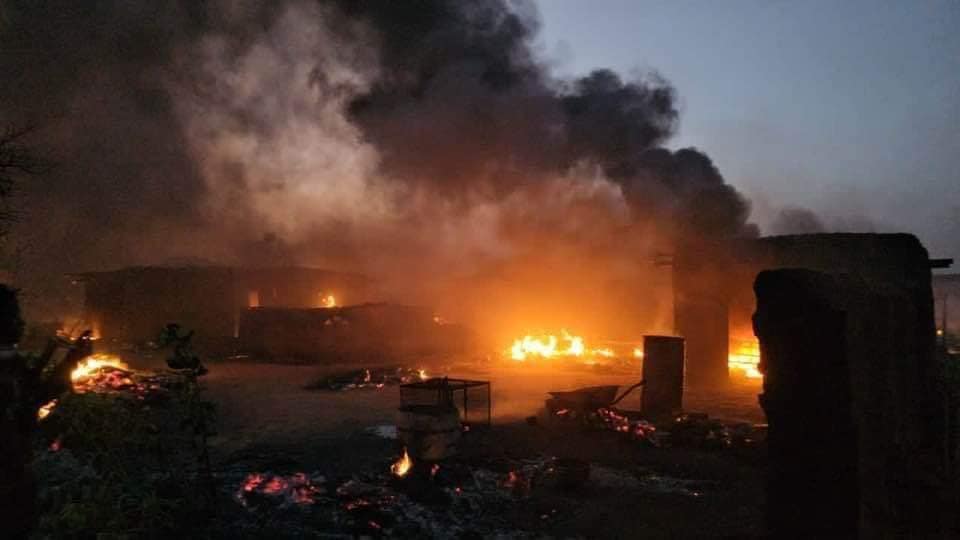Hospital bombed in North Darfur as RSF shelling intensifies

Aftermath of SAF-RSF fighting in El Fasher North Darfur taken on May 23 (Photo El Fasher Resistance Committees via Facebook)
The paramilitary Rapid Support Forces (RSF) bombed Jebel Marra Hospital at the North Darfur’s El Fasher’s Grand Market yesterday. The northern section of the hospital’s third floor was destroyed, though medical equipment remained largely undamaged.
El Fasher, the capital of North Darfur, witnessed numerous RSF attacks. Witnesses described further shelling incidents in the area. One shell landed near the dialysis centre, causing minimal damage, while another fell at a transportation station in the Ziyadiya neighbourhood, but failed to detonate.
The El Fasher Resistance Committees condemned the RSF’s ongoing attacks on residential neighbourhoods, shelters, and healthcare facilities in a statement on their Facebook page yesterday.
Displaced people in Abu Shouk camp, located north of El Fasher, are facing severe health facility shortages as the camp’s population swells with new arrivals. Mohamed Ahmed, a coordinator in the camp’s emergency room, reported that the camp now hosts over 256,000 people. The existing health centres are inadequate for the growing number of displaced individuals.
He appealed to humanitarian organisations to provide urgent assistance, enabling health centres to meet the increasing demands for medical care in Abu Shouk camp.
Abu Shouk camp
On Monday, Radio Dabanga reported that dozens of people were killed, and many others were wounded by shelling in the Abu Shouk camp, in the past two weeks. As the fighting between the RSF that is besieging the city and the Sudanese Armed Forces (SAF) continues and food has become very scarce, many more camp residents are fleeing their shelters towards the south.
“More than 50 people died and at least 74 others were wounded by missiles in 14 days,” a member of the Abu Shouk Emergency Room told Radio Dabanga on Friday. He attributed the ongoing fierce fighting near the camp to its geographical location: “Abu Shouk lies in the middle of the battle field.”
The activist described the situation in Abu Shouk camp as extremely difficult and miserable. “No one dares to leave the camp in the mornings because the artillery shelling usually starts at dawn and continues until noon. Shells are falling everywhere, on the streets, at houses, shops, and market stalls,” he said. “The fighting has caused extensive damage to the camp. The displaced live day by day. If they cannot not go to the market, they don’t have a meal for the day. But many don’t have work anymore, so most of the camp residents have become beggars.”











 and then
and then